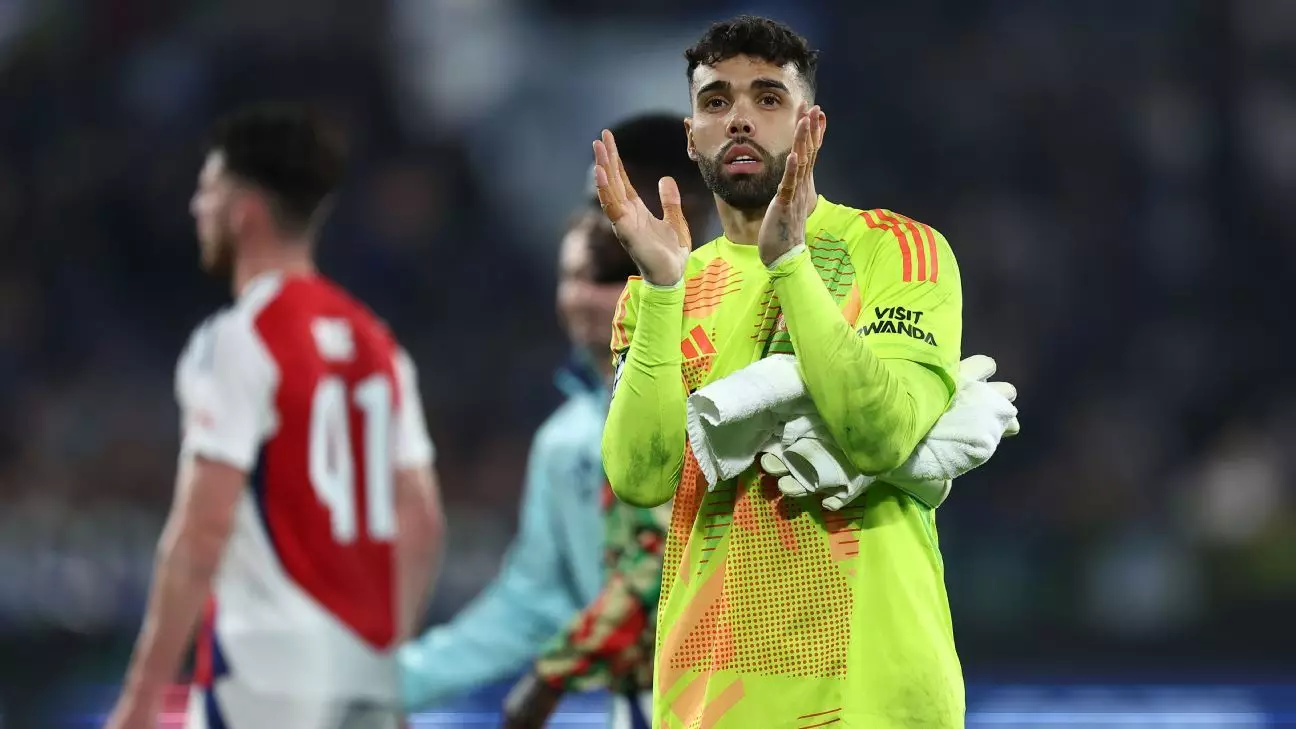Arsenal’s 0-0 draw against Atalanta at the Gewiss Stadium marked the commencement of their UEFA Champions League campaign. While both clubs harbored aspirations of making a strong initial impression, the match revealed an underwhelming offensive display from both sides. Neither team was able to translate possession into tangible scoring opportunities, and it soon became clear that each would be content to share the spoils.
From the outset, the match lacked excitement. Arsenal’s Bukayo Saka and Gabriel Martinelli presented fleeting glimpses of potential, but their efforts failed to significantly challenge the opposition’s defense. Saka’s free-kick stood out as an isolated moment of creativity, while Martinelli’s missed opportunities, particularly when a clear chance emerged from within the box, underscored a lack of sharpness in the final third. This game would be characterized more by defensive discipline than attacking flair, a theme that would continue throughout the match.
The first real moment of jeopardy came early in the second half, when Thomas Partey’s foul resulted in a penalty for Atalanta. Mateo Retegui stepped up, but was thwarted by Arsenal’s goalkeeper, David Raya, who pulled off a remarkable save. To compound Atalanta’s frustration, Raya rebuffed the ensuing rebound, showcasing his critical importance to Arsenal’s backline throughout the match. This sequence not only preserved Arsenal’s clean sheet but also illuminated the keeper’s confidence—an essential attribute for any Champions League campaign.
Atalanta seemed to have glimpses of hope as Juan Cuadrado attempted to break the deadlock with two shots from distance that failed to find their mark. Meanwhile, Arsenal’s approach lacked the incisiveness that could turn draws into wins. Their focus shifted from aggressive attacking to cementing a stable defensive structure, and as the match progressed, it felt increasingly like a tactical draw rather than a struggle for supremacy.
Individual Performances: A Mixed Bag
Despite the overall lack of goals, individual performances did shine through. David Raya emerged as Arsenal’s standout player, awarded an impressive score that highlighted his pivotal role—particularly in saving the crucial penalty. His organizational skills and decisive actions undoubtedly kept the Gunners in the game when Atalanta looked poised to score.
In defense, William Saliba and Gabriel exhibited their ability to control the backline, neutralizing Atalanta’s attacking threats efficiently. Saliba’s interventions were precise, and Gabriel’s anticipation prevented any significant penetration from Atalanta’s playmakers. Conversely, some of the midfield performances, particularly from Thomas Partey, were less impactful and marred by inconsistency. His involvement in conceding the penalty overshadowed his structural contributions to the midfield.
Aside from Raya, Declan Rice emerged as a linchpin for Arsenal, dynamically linking defense and attack while maintaining presence in crucial areas. However, the creativity and attacking prowess from the forwards, particularly Saka, Gabriel Jesus, and Martinelli, often dissolved into mediocrity. Their inability to convert limited chances into goals raises questions about Arsenal’s attacking strategy and whether adjustments are essential going forward.
Mikel Arteta’s Strategic Choices
Mikel Arteta’s management during the match indicated a more cautious philosophy, which was apparent in his timely substitutions. The inclusion of Raheem Sterling aimed to provide fresh legs and creativity, but while he indeed generated a promising opportunity for Martinelli, the execution failed once again. Arteta’s decisions seemingly reflected a desire to avoid early-season losses in a highly competitive tournament.
While defending a clean sheet away from home can certainly be a morale booster, the offensive dullness exhibited during this match will warrant scrutiny. Arsenal’s performance highlighted a need for fine-tuning in the final third, particularly when the stakes are high in European competition. The Gunners would benefit from developing a rhythm that not only secures defensive solidity but translates into potent attacking threats. More precise execution and collaborative movement would elevate their potential and ensure they are not merely content sharing points in future matches.
As they progress in the Champions League, Arsenal must capitalize on this performance, identifying areas for improvement while taking comfort in their defensive strength. Securing a valuable point against a resilient side like Atalanta is commendable; however, addressing the offensive deficiencies will be crucial in enabling the Gunners to challenge for broader honors this season. The Champions League is a stage where creativity can flourish, and Arsenal must seize the moment as they continue their journey in Europe.

